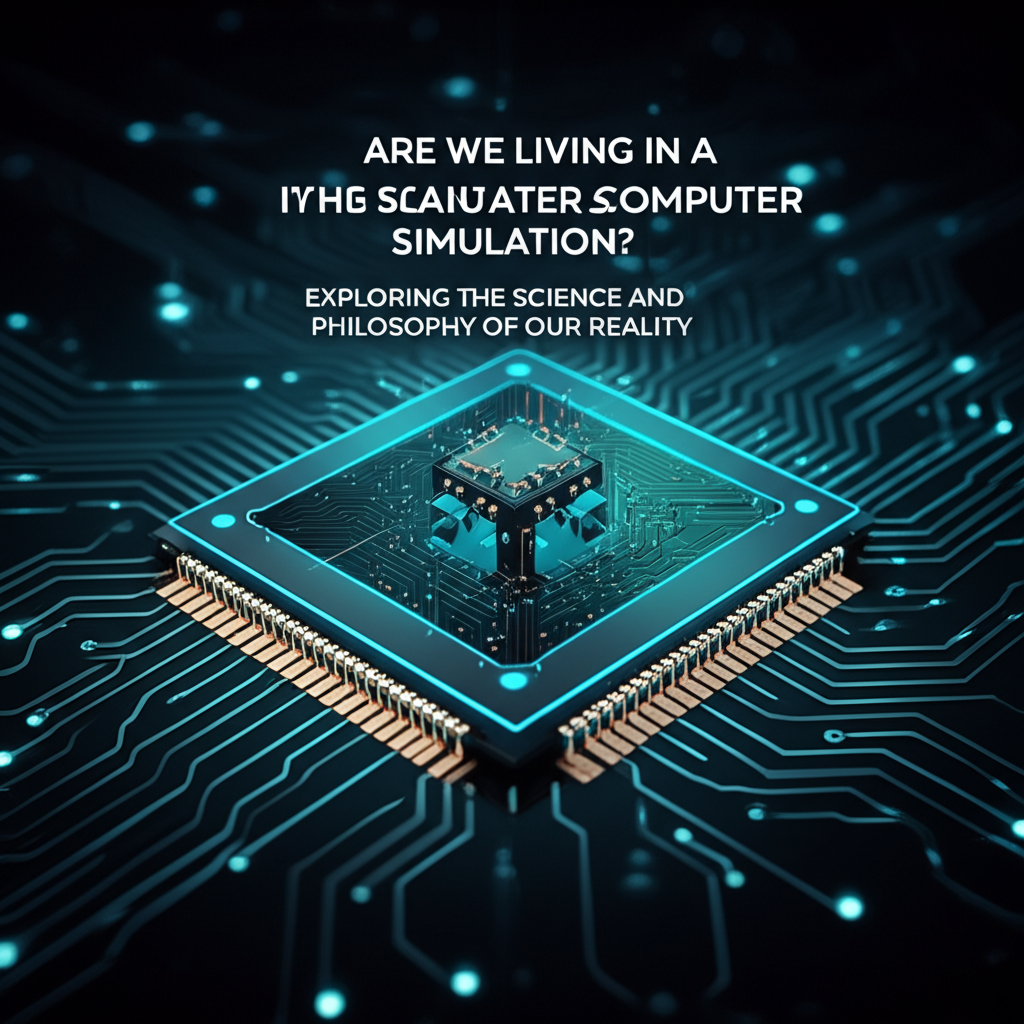Are We Living in a Computer Simulation? Exploring the Science and Philosophy of Our Reality
Unraveling the ultimate existential question with science and thought.

The Intriguing Question: Is Our Reality 'Real'?
The idea that our entire existence – the universe, our experiences, and our consciousness – might be nothing more than a highly advanced computer simulation is a concept that has captivated philosophers, scientists, and even pop culture for decades. From the iconic film 'The Matrix' to the musings of renowned thinkers, the simulation hypothesis challenges our fundamental understanding of reality.
But is this just a thought experiment, or is there any way to truly discern if we're living inside an intricately coded program? Recent discussions among researchers draw from diverse scientific frameworks to tackle this profound question, largely leaning towards debunking the digital delusion, at least for now.
Understanding the Simulation Hypothesis
At its core, the simulation hypothesis, popularized by philosopher Nick Bostrom, suggests one of three things must be true:
- Almost all civilizations at our level of development go extinct before reaching posthuman stages.
- Posthuman civilizations are not interested in running ancestor simulations.
- We are almost certainly living in a simulation.
Bostrom argued that if technological progress continues and advanced civilizations exist, it's statistically probable that they would run countless such simulations, making it more likely that we are one of them rather than the original, 'base' reality.

Scientific Arguments Against a Simulated Reality
While the idea is compelling, many scientists point to fundamental aspects of our universe that make a simulation highly improbable or at least undetectable. Here's a look at some key arguments:
1. The Immense Computational Power Required
One of the most immediate objections is the sheer scale of computation needed to simulate a universe as complex as ours, down to the quantum level. Every particle, every interaction, every wave function would need to be calculated. Even a universe the size of ours containing just a few basic particles would be astronomically demanding. Furthermore, simulating consciousness and the subjective experience of billions of beings adds another layer of unfathomable complexity.
2. Quantum Mechanics and the Nature of Reality
Quantum mechanics, the physics of the very small, presents significant hurdles for the simulation hypothesis. Phenomena like quantum randomness, superposition, and entanglement suggest a reality that is fundamentally fuzzy and probabilistic until observed. If our universe were simulated, these quantum uncertainties would either require an infinite amount of processing power to render perfectly, or imply shortcuts (like rendering only what's observed) that might leave a detectable trace.

3. Information Theory and Limits on Data
Scientists have explored the idea of inherent limits to information density in the universe. If there's a finite amount of information that can exist within a given volume, and if quantum mechanics truly implies a fundamental randomness, then the idea of a perfectly deterministic and predictable underlying code becomes problematic. Any 'glitches' or 'computational limits' in a simulation would likely manifest as deviations from expected physical laws, which so far haven't been conclusively observed.
4. The Holographic Principle
While not directly refuting the simulation idea, the holographic principle (which suggests that all the information contained in a volume of space can be represented by information on a lower-dimensional boundary) offers a different, albeit related, perspective on the fundamental nature of reality. It implies a certain 'pixelation' of reality at its most fundamental level, which some might interpret as a hint towards a simulation, but it also places strict limits on the information content.
The Philosophical Loop: Can We Ever Truly Tell?
Beyond the scientific arguments, the philosophical implications are equally thorny. If we are in a perfect simulation, how would we ever know? Any test we devise would itself be part of the simulation, potentially yielding simulated results. This creates an epistemological loop where true knowledge of our 'base reality' might be forever out of reach.
Moreover, if our reality *is* simulated, does it even matter? Our experiences, emotions, and relationships would still be real to us. The pursuit of understanding, the joy of discovery – these would remain valid within our perceived reality. The distinction between a perfectly simulated reality and a 'base' reality becomes less significant if there's no way to tell the difference.

Conclusion: A Universe Worth Exploring
While the simulation hypothesis remains a fascinating thought experiment, current scientific understanding, particularly in physics and information theory, suggests our universe is either not a simulation or is so flawlessly simulated that it's indistinguishable from a fundamental reality. The incredible complexity and seemingly irreducible randomness of quantum mechanics, combined with the staggering computational resources required, pose formidable challenges to the idea of a simulated existence.
Ultimately, whether our reality is fundamental or simulated, the drive to understand it, explore its mysteries, and push the boundaries of knowledge remains a profoundly human endeavor. And perhaps, that pursuit itself is the most 'real' thing of all.





